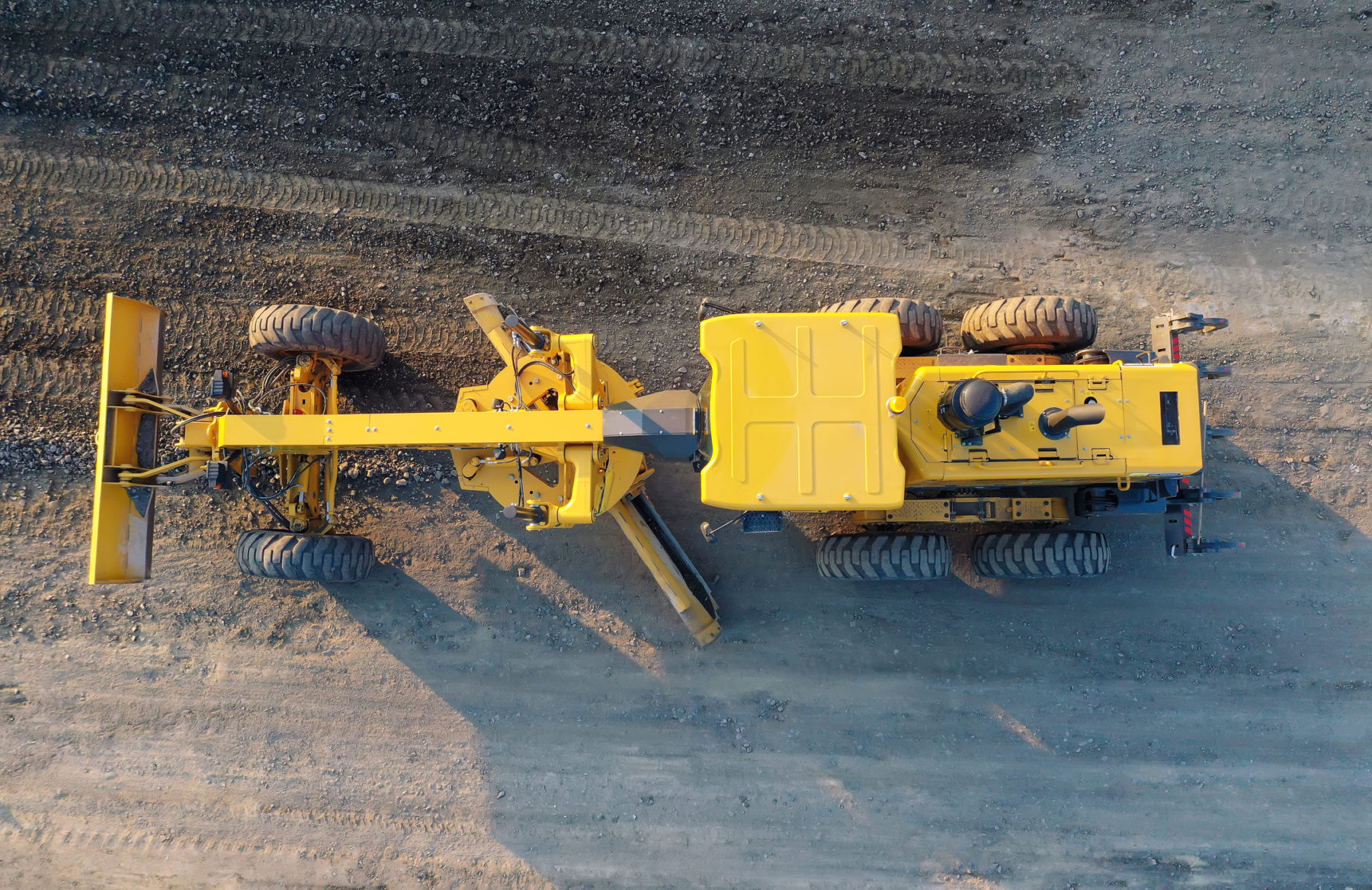Ultimate Guide to Construction Vehicles
November 4, 2022
 Have you ever wondered what it takes to build roads, highways, and bridges? If so, you certainly aren’t alone. Road construction is an entirely different task than more generalized construction, so it requires highly specialized machinery. Below is a quick guide to the five most common types of highway construction vehicles.
Have you ever wondered what it takes to build roads, highways, and bridges? If so, you certainly aren’t alone. Road construction is an entirely different task than more generalized construction, so it requires highly specialized machinery. Below is a quick guide to the five most common types of highway construction vehicles.
Motor Graders
A motor grader may also be referred to as a road grader, and its job is to flatten out the surfaces where roads will travel. The grader uses a long blade underneath it, 10 feet to 12 feet in length, that is fitted with a sharp edge so they can grade very hard, rocky dirt, which we call road base or base course. They’re necessary from the first step in the road construction process to the last, whether they are stripping the top layer of ground or smoothing it out to prepare it for the paver that will come behind it. Graders can also dig ditches and trenches with the blade for drainage both during and after construction. In some cases, it may be necessary for graders to dig into the earth to create banks or even remove snow from the construction site.
Pavers
An asphalt paver – often simply called a “paver” – is a vehicle that serves the purpose of laying asphalt down on the highway. The paver holds a big hopper filled with asphalt mix and uses a heated screed, that is very heavy to “strike off” and lay down a smooth layer of asphalt. A dump truck dumps their asphalt into the hopper of the paver, then like a conveyor belt, the paver moves the asphalt to back of the machine where the screed deposits the asphalt on the graded surface. Then, the screed flattens out the asphalt to the desired thickness using a tamping system. The paver operator is required to drive the paver straight, while two screed operators maintain strict control over the screed to ensure the consistency, drainage, and depth of the asphalt are the same from start to finish.
Compactors
An asphalt compactor looks very much like a steam roller, but it utilizes a water spraying mechanism to prevent the asphalt from sticking to the roller. These vehicles use their own massive weight and intense vibration to force the asphalt into the specified density. The specific mix of the asphalt may require a specific type of asphalt compactor. Sometimes a compactor will have rubber tires, and sometimes it will have one or more smooth metal rollers.
Skid Steers & Compact Track Loaders
Skid steers and compact track loaders are essential vehicles when it comes to highway construction because they have a huge assortment of attachments that make them indispensable. A skid steer has wheels that allow it to travel over pavement, but a compact track loader can travel offroad across all kinds of ground. These vehicles can dig trenches and remove materials or snow, and they exist to handle all the tasks that the grader, paver, and compactor cannot. Because they are versatile and powerful, they can move material that’s too heavy for people, while still allowing them access to confined areas not suitable for larger equipment.
Excavators
While the vehicles above are capable of moving earth to a degree, an excavator may be called in to remove vast amounts of rock, dirt, sand, or even clay. Excavators are often called Track Hoes or Tracked Excavators. They can break up large swaths of debris so that it can be removed from the site, and their primary purpose is to ensure that the surface is ready for underground pipes, or to prepare the surface to support the weight of the grader and the equipment that will come after it. Excavators range from small to absolutely massive depending on the size and nature of the job.
From pavers to excavators, there’s a wide range of machinery required to create the systems of roads and highways we drive on every day, and there are even more skilled operators who make a career out of operating them safely and efficiently. At Four Corners Materials, we utilize them all! Under the careful precision of our operators, we’ve helped build the infrastructure that spans Colorado and New Mexico. If you’ve got questions or need an expert eye for your upcoming paving project, give us a call today!

